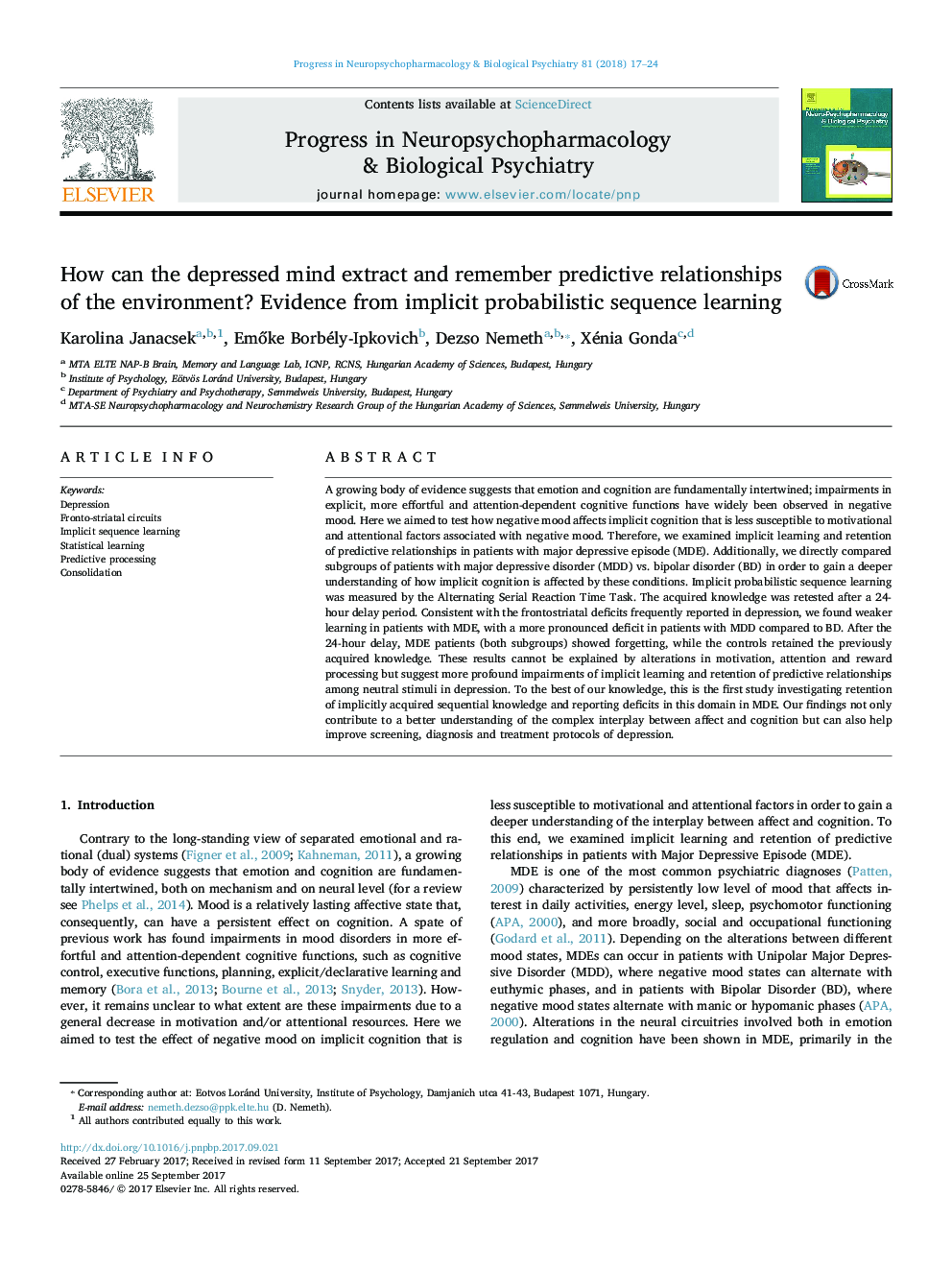| کد مقاله | کد نشریه | سال انتشار | مقاله انگلیسی | نسخه تمام متن |
|---|---|---|---|---|
| 5557882 | 1561013 | 2018 | 8 صفحه PDF | دانلود رایگان |
- We examined implicit probabilistic sequence learning and retention in patients with MDE
- Patient subgroups with Major Depressive Disorder (MDD) vs. Bipolar Disorder (BD) were compared
- We found weaker learning in MDE that was more prominent in BD than in MDD
- Both MDD and BD subgroups showed forgetting over the 24-hour delay period
- Our results help better understand brain plasticity alterations in negative affective states
A growing body of evidence suggests that emotion and cognition are fundamentally intertwined; impairments in explicit, more effortful and attention-dependent cognitive functions have widely been observed in negative mood. Here we aimed to test how negative mood affects implicit cognition that is less susceptible to motivational and attentional factors associated with negative mood. Therefore, we examined implicit learning and retention of predictive relationships in patients with major depressive episode (MDE). Additionally, we directly compared subgroups of patients with major depressive disorder (MDD) vs. bipolar disorder (BD) in order to gain a deeper understanding of how implicit cognition is affected by these conditions. Implicit probabilistic sequence learning was measured by the Alternating Serial Reaction Time Task. The acquired knowledge was retested after a 24-hour delay period. Consistent with the frontostriatal deficits frequently reported in depression, we found weaker learning in patients with MDE, with a more pronounced deficit in patients with MDD compared to BD. After the 24-hour delay, MDE patients (both subgroups) showed forgetting, while the controls retained the previously acquired knowledge. These results cannot be explained by alterations in motivation, attention and reward processing but suggest more profound impairments of implicit learning and retention of predictive relationships among neutral stimuli in depression. To the best of our knowledge, this is the first study investigating retention of implicitly acquired sequential knowledge and reporting deficits in this domain in MDE. Our findings not only contribute to a better understanding of the complex interplay between affect and cognition but can also help improve screening, diagnosis and treatment protocols of depression.
Journal: Progress in Neuro-Psychopharmacology and Biological Psychiatry - Volume 81, 2 February 2018, Pages 17-24
